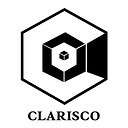The ethereum developer uses ERC-20 and ERC-721 to create digital assets on the blockchain. These tokens define how the users can transfer the ownership of compliant digital assets. The common interface for transferring the ownership of these digital assets is powerful. The inclusion of a few optional pieces of data has proven that namely, token name, symbol, and the number of decimals. Incorporating this extra information into the standard makes the information more helpful and informative.
One of the popular protocols that take advantage of the ERC20 token standard is a protocol that facilitates the decentralized exchange that has the tokenized assets on the Ethereum blockchain. This protocol allows the users to atomically swap x number of W tokens for y number of Z tokens. Here the swap is executed by a smart contract immediately — there is no risk whether one party transfers their ownership of tokens while the other party does not reciprocate and it allows for trustless to exchange the tokenized assets. For simple transactions like purchasing a coffee from Starbucks, there is a period when one party has yet to fulfill the side of the agreement; here the party is in debt.
Of course, one of the most obvious issues is that a Starbucks coffee does not exist on the blockchain, but let’s ignore it. We would still not be able to represent this transaction because here the transaction is not an atomic swap of two assets. Instead of swapping $4 for one cup of coffee, the purchaser is swapping $4 for the cup of coffee in a few minutes. Admittedly, just because the 0x protocol couldn’t easily facilitate this transaction doesn’t mean we could not represent this transaction on the blockchain — Starbucks could develop their smart contract to facilitate this transaction. However, we might also want to buy coffee from Dunkin Donuts and Saxbys, so they each could implement their smart contracts as well. I can now buy a coffee from each of these stores using the Ethereum blockchain!
Unfortunately, these ad hoc implementations of similar transactions lead to debt and are not interoperable. Unlike ERC20 tokens, which have the same methods to transfer their ownership, these individual implementations of debt on the blockchain would not have to be a shared set. Here we would not see the creation of protocols that are like an 0x.
It might not be immediately obvious then why we would need a protocol like 0x. I purchase a coffee and receive it a few minutes later. There are many common secondary uses of debt and it is impossible to recreate the blockchain.
I debt standard as an optional supplement to the ERC721 token. This is just like the name, symbol and decimal are optional supplements to the ERC20 token standard. The Debt defines a common interface that is implemented by ERC721 token smart contracts deployed as a registry of debt. By providing this common debt standard, individuals and their applications will be able to gain insight into the debt that each token represents systematically. This allows the creation of financial management tools that can be used to manage all forms of debt across the Ethereum blockchain.
The existing ERC 721 token is inadequate for representing debt on the blockchain because, although it does provide a standard for transferring their ownership of unique tokens, the standard does not include common basic functionality. Importantly, the ERC 721 token standard does not have a standard for associating the value of debt with each token. Because all forms of debt have a value, it is beneficial to the Ethereum community to agree on a set of basic functions to interact with the value here each debt is worthy.
The adoption of the debt standard will break down all the walls of the silos that are currently under construction and allow for the secondary markets to exist that are accessible to all the debt on the Ethereum blockchain, which is regardless of what platform facilitated its creation.
